It is normal for us to ask ourselves whether suffering can be a good thing or not, especially when we go through a difficult time in our life.
It is obvious that in our day to day life there will be some suffering. It may be due to a health problem, injury, or disease. There might also be emotional pain, caused by stress or anxiety.
Surely the question we must ask ourselves is not whether or not we are going to experience suffering, but rather when. That is because pain and suffering are inherent to human existence.
However, as bad as it is, pain and suffering can teach us a lot. It is important to understand that pain may certainly bring you good things, too.
It allows you to grow and develop as a person. To learn. To challenge your own limits. There are many positive things waiting for you, but only if you look for them and are able to find them.
That is exactly the purpose of this article: I’d like to help you see the bright side of hardship by sharing my perspective so that you can move on towards a happier life.
So, can suffering actually be a good thing?
Everything we do has a double purpose: to experience it first, and then to learn from what we get from that experience. That is why learning can always be considered a gift, even though often pain happens to be the teacher.
We always learn something from what marks us, surprises us, causes us pain or draws just enough attention to steal our time and energy. If that wasn’t the case, in fact, we would quickly forget—we wouldn’t have a memory of anything.
Without suffering It would be really hard to get perspective of what happy memories are, and thus appreciate them that much more.
You know what I’m talking about. You really get to love and savor your “rest”time once you know what an overloaded, harsh and stressful week at work feels like; or what desert taste like once you go on a strict diet or fast.
Not to mention of the most important things— the moral lessons that we get from the hardest moments of our lives.
Pain is a true teacher.
I’m sure you’ve probably noticed that you rarely learn much of anything when everything is sunshine and rainbows.
It is when it gets really bad, that we begin to wonder what went wrong, and what we can do the next time around to get a better outcome. You learn your lessons and move on.
Suffering can be a good thing, as it usually comes with the same force with which happiness had come moments before.
Sometimes happiness is brought to us by what is now causing us pain (as it happens with a divorce or lack of good health). It’s normal. So we need to understand that many times pain comes after joy, with stories that end, lives that separate, illnesses that imprison.
“In pain there is as much wisdom as in pleasure: both are the two great conservative forces of the species.” –Nietzsche
Pain is a teacher because it always brings the certainty that behind it there has been something that has been worthwhile: it is the prelude to new joys where we value, understand and care more about what we have.
And so it happens that learning is always a gift. Even if we do it from a suffering that seems unbearable at the time. It is in the sense that it helps us to become better people and makes us aware that after feeling at the top of the world we must go back down to find the uncharted territories of our lives. It can teach us humility, if we let it. We live and we learn.
Suffering can be a good thing because once you experience it, you can recognize what causes it so that you can to do something about it and to learn to avoid it in the future.
Personally, I believe reducing unnecessary suffering is one of the most important things one could do in life to improve their overall quality of life and happiness.
In addition to what I’ve mentioned before, learning from pain means understanding.
Understanding that there is a great difference between the involuntary sensation that something that hurts us produces, and the permission to let that sensation extend in time until it becomes unbearable. One of the most important life lessons I have ever learned is this.
Pain and suffering are not the same, unless we let them be. We decide. We are in control.
“This is how a wound is healed: it begins to close on itself, to protect what hurts so much and, once closed, you no longer see what is underneath, what caused the pain.” — Amy Tan
The older you get and more mindful and self-aware you become, you begin to understand that pain is inevitable but suffering is optional.
Pain is useful because it indicates that something’s wrong. And it helps us to face new realities and become stronger.
However, suffering is useless: it is beneficial to let go of it, heal your emotional wounds and continue.
Setting the limits for pain and suffering is something you need to do: mark the point where it is no longer inevitable, in order to be able to look forward again. Stop looking for possible answers and learn that there are just things that happen. Acceptance is freedom.
Learn that there can be a before and after to pain.
The truth is that suffering can be a good thing: At times pain might be so intense that learning from it involves a huge change in our inner self. That leads to personal development (as you know that is one of my favorite topics to talk about)
Each “pain” blow signals and reminds us that there can be a before and after for us.
Before the need of a change we did not expect it. Now we understand that pain is part of our journey. The damage stays there, within us, in the form of experience and tools to deal with new adventures to come. One of the greatest achievements will be understanding pain and learning from it.
Certainly, pain is a teacher because through it we see the magnitude of a before and the importance of an after: we leave it like someone who is disoriented when entering a cloud where nothing is easy to be seen. And then, when it’s all said and done, seeing clarity again makes us feel alive.
«And when the sandstorm has passed, you will not understand how you managed to cross it alive. And it is that the person who emerges from the storm will not be the same person who entered it.» —Murakami
In this way we feel ourselves by learning from pain. After it, we realize everything that we were and did not know. We observe what was there and we did not see, and understand that pain teaches us to look back only to gain momentum.
I think momentum plays a crucial role in personal development, as it helps so much with maintaining and improving self-discipline, and making new habits stick.
One of the ways how we can reduce unnecessary suffering and pain is to face your fears first.
The practice of overcoming fear is designed to help with everyday fears that get in the way of life and cause emotional pain.
We cannot devote ourselves to discussing those fears and analyzing them, as that would cause unnecessary suffering. In order to ease the pain, we have to address that emotion directly.
The first step is to expose yourself slowly and repeatedly to what scares and hurts you. In small doses. For example, people who are afraid of public speaking may try to speak more when they are in a group, with friends, or with family.
Over time, the challenge can increase, until you’re ready to do a presentation or interview on camera.
Start by taking small steps toward your fears, and gradually your pain will disappear, leaving behind its valuable lesson.
To give you an example, I’m a very introverted person with a severe social anxiety, and talking to a stranger or worse —public speaking gigs was once a massive fear of mine that always caused an insane amount of suffering to me. And it still does, just not nearly as much.
So what I’ve done is I’ve slowly exposed myself to it. Starting very small. As small as possible: I started talking with the one person I kinda already enjoyed talking to for a long time. Me. So I talked to myself. Laugh all you want, but I still do it to this day.
Then I slowly transitioned to talk with family members. One on one. Then with friends. Then, in school, I was volunteering more and more to speak in front of the class.
And I continued doing that in college, gradually increasing the amount of time I had to speak and the size of the audience.
Even nowadays, I still practice it by sharing my story in front of first year med students at a local university. I believe it’s important facing ones fears, as it reduces the suffering in a very noticeable way.
I was exposing myself more and more each time. Now, talking to strangers is not as excruciating as it once was. It is something I can do, if I have to, without collapsing or freezing. To a person with a massive social anxiety that is an insane improvement.
Self-compassion helps us accept.
If you could simply take 10 minutes per day to write a letter of understanding, acceptance and compassion to yourself, it would reduce your pain exponentially.
Specially if you write about something that is a struggle or that you blame yourself for: not spending enough time with your children, not having patience or sympathy or whatever that still hurts.
In that letter you can remind yourself that we all have those kinds of struggles. Include constructive ways to improve in the future to reduce your suffering further and make the best of the situation you find yourself in.
Practicing meditation to come back to the present moment.
As you know meditation is something I’m passionate about. I’ve been meditating daily for over three years now, and can’t imagine a better way to learn acceptance than practicing mindfulness.
It’s just absolutely astonishing what meditation can do to your life.
I am not sponsored or endorsed by anyone to say or promote that. It’s easily in my top 3 of the most important things I believe every human being might want to do when trying to improve their lives.
I think Sam Harris is a great meditation teacher and he is definitely my favorite. If you’ve never heard of meditation or are new to it, his “Waking Up” meditation APP can help you get started on this amazing journey.
“Mindfulness allows you to experience your life in the present, without ruminating about what just happened, what should have happened, what almost happened, what might yet happen, etc. So the connection to happiness is very direct. At bottom, mindfulness is the ability to pay attention to what actually matters. It’s hard to imagine a more powerful productivity tool than that.” — Sam Harris
Being more aware of the pain you suffer from and the emotions you are feeling could also help you limit the suffering dramatically.
Body awareness allows us to observe and accept that something might be wrong or hurt and that’s ok. Avoiding your pain constantly or running from it will certainly lead to exhaustion and more suffering.
I’ve almost entirely got rid of many of my anxieties and physical pain that I had for over a decade, without any medication or treatment other than practicing mindfulness meditation for at least 10 minutes each day.
Depending on your personal situation it might take time before you see dramatic changes in your life. But some things, you might notice from day one of your practice.
You will feel lighter and more relaxed. Sometimes we need that kind of break from the stress, and it’s completely natural.
From all the things that I have ever done trying to improve my life—all of them combined do not even nearly come to a close-second-place to meditation. Meditation is just that good.
For one, I was able to get rid of the pain in my shoulders (snapped scapula syndrome) that bothered me for over a decade. As far as I’m concerned, It’s a bloody miracle.
And all you have to do is just sit down for ten minutes and focus on the sensation of your breathing.
Easier said than done, but so worth it. We all face a lot of unnecessary suffering in our lives and meditation is the best tool I know to help you greatly reduce it.



